The Bihar Rural Livelihoods Promotion Society (BRLPS) has released the complete Bihar Jeevika Syllabus and Exam Pattern 2026, giving candidates a clear roadmap for cracking the recruitment exam. With 2700+ vacancies for positions like Block Project Manager, Area Coordinator, Accountant, and Community Coordinator, knowing the syllabus inside out is your key to staying ahead.
The Bihar Jeevika syllabus (बिहार जीविका पाठ्यक्रम) brings together essential topics, from rural development and livelihood promotion to government schemes, IT, and finance, carefully designed for each post. A solid understanding of these subjects will help you prepare smarter and boost your chances of selection.
Bihar Jeevika Syllabus and Exam Pattern 2026
To make your preparation easier, we’ve shared the direct link to download the Bihar Jeevika Syllabus & Exam Pattern 2026 PDF. This post-wise syllabus gives you complete guidance in one place, showing all the important topics and helping you plan your study strategy for the best results.
Whether you’re aiming for a technical, managerial, or coordination-level post, the official Bihar Jeevika Syllabus (बिहार जीविका पाठ्यक्रम) will help you plan smarter and stay ahead of the competition. In this article, you’ll find the full exam pattern, detailed syllabus, and expert preparation tips to help you crack the Bihar Jeevika Exam with confidence.
BRLPS Bihar Jeevika Syllabus 2026: Key Highlights
The Bihar Jeevika Syllabus 2026 (बिहार जीविका पाठ्यक्रम) covers a wide range of topics based on the specific post applied for. Candidates must follow the updated post-wise syllabus to prepare effectively for the written exam and further selection stages.
| Bihar Jeevika Syllabus 2026: Key Highlights | |
| Conducting Body | Bihar Rural Livelihoods Promotion Society (BRLPS) |
| Post Name | Block Project Manager, Livelihood Specialist, Area Coordinator, Community Coordinator, Accountant, Office Assistant and more. |
| Vacancy | 2747 |
| Category | Syllabus |
| Status | Released |
| Selection Process | CBT Test, Typing Test, and Document Verification |
| Job Location | Bihar |
| Official Website | www.brlps.in |
Bihar Jeevika Result 2026 – Download Link
Bihar Jeevika Cut Off 2026- Click here to check
Bihar Jeevika Post-Wise Syllabus 2026
The BRLPS Jeevika Syllabus 2026 (बिहार जीविका पाठ्यक्रम) varies by post, covering subjects like Rural Development, Government Schemes, Livelihood Promotion, IT, and Finance. Knowing the post-wise syllabus is key to focused preparation and exam success.
बिहार जीविका पाठ्यक्रम – Block Project Manager Syllabus
| Section | Topics |
|---|---|
| Rural Society, Economy, and Governance |
|
| DAY-NRLM |
|
| Social Mobilization & Institution Building |
|
| Financial Inclusion |
|
| Livelihood Promotion |
|
| Project Management & Convergence |
|
बिहार जीविका पाठ्यक्रम – Livelihoods Specialist (LHS) Syllabus
| Section | Topics |
|---|---|
| Sustainable Agriculture |
|
| Livestock |
|
| Value Chain Development |
|
| Rural Enterprise Development |
|
| Community Institution Building |
|
| Miscellaneous |
|
बिहार जीविका पाठ्यक्रम – Area Coordinators Syllabus
| Section | Topics |
|---|---|
| Rural Development Basics |
|
| Govt Schemes |
|
| Community Institutions |
|
| Financial Literacy |
|
| Livelihood Promotion |
|
बिहार जीविका पाठ्यक्रम – Accountant (BPIU) Syllabus
| Section | Topics |
|---|---|
| Accounting |
|
| Auditing |
|
| Labour & Economic Law |
|
बिहार जीविका पाठ्यक्रम – Office Assistant (BPIU) Syllabus
| Section | Topics |
|---|---|
| Core Skills |
|
| Software Tools |
|
| Admin Tasks |
|
| Soft Skills |
|
| Extra Skills |
|
बिहार जीविका पाठ्यक्रम – Community Coordinators Syllabus
| Section | Topics |
|---|---|
| Rural Development Basics |
|
| Govt Schemes |
|
| Community Institutions |
|
| Livelihood Promotion |
|
बिहार जीविका पाठ्यक्रम – Block IT Executive Syllabus
| Section | Topics |
|---|---|
| Computer Basics |
|
| Devices |
|
| Memory |
|
| Software Knowledge |
|
| Cybersecurity |
|
| Data & Analytics |
|
| Programming |
|
| Networking & Cloud |
|
| Emerging Tech |
|
Bihar Jeevika Exam Pattern 2026
The Bihar Jeevika Exam will be conducted online for multiple posts under the BRLPS recruitment. The exam pattern may vary slightly depending on the role, such as Office Assistant, Block IT Executive, Technical Expert, or managerial positions.
The examination generally includes key sections such as:
-
Reasoning Ability
-
Quantitative Aptitude
-
General Awareness
-
Subject-Specific Knowledge
Understanding the updated exam pattern is crucial, as it helps candidates prepare strategically, manage time effectively, and focus on the areas that carry the most weight.
Bihar Jeevika Exam Pattern 2026 for Office Assistant & Block IT Executive
- Total Questions: 60
- Each Question: 1 mark
- Exam Duration: 70 minutes
| Sections | Questions | Marks | Duration |
|---|---|---|---|
| National and International Organisations | 2 | 2 | |
| Science and Technology (Basic concepts & recent developments) | 3 | 3 | |
| Sports (Events, players, achievements) | 2 | 2 | |
| Analytical Reasoning (Analogy, Series – Semantic, Symbolic) | 3 | 3 | |
| Arithmetical & Spatial Reasoning | 3 | 3 | |
| Classification (Choose the odd word) | 3 | 3 | |
| Data Interpretation | 3 | 3 | |
| Quantitative Aptitude (Percent, Ratio, Interest, Profit/Loss) | 9 | 9 | |
| Matching Concept (Indexing, Address, City & Word Building) | 2 | 2 | |
| Subject Knowledge | 20 | 20 | |
| Computer Proficiency Test | 10 | 10 | |
| Total | 60 | 60 | 70 minutes |
Bihar Jeevika Exam Pattern 2026 for Other Posts
- Total Questions: 70
- Each Question: 1 mark
- Exam Duration: 80 minutes
| Sections | Questions | Marks | Duration |
| Awards and Honours (National & International) | 3 | 3 | |
| Important Schemes (Govt. Programs) | 3 | 3 | |
| History of India (Modern) | 3 | 3 | |
| National and International Organisations | 3 | 3 | |
| Science and Technology | 3 | 3 | |
| Sports (Events, players, achievements) | 2 | 2 | |
| Analytical Reasoning (Analogy, Series – Semantic, Symbolic) | 3 | 3 | |
| Arithmetical & Spatial Reasoning | 3 | 3 | |
| Classification | 3 | 3 | |
| Data Interpretation | 3 | 3 | |
| Quantitative Aptitude | 9 | 9 | |
| Matching Concepts (Indexing, City & Word Building) | 2 | 2 | |
| Subject Knowledge | 20 | 20 | |
| Computer Proficiency Test | 10 | 10 | |
| Total | 70 | 70 | 80 minutes |
| Passage Requirement | Max. Words per Passage | Language | Time | Marks |
|---|---|---|---|---|
| For mock Typing (Hindi – Mangal Font) | 40 | Hindi | 2 min | — |
| For actual Typing (Hindi – Mangal Font) | 150 | Hindi | 5 min | 5 |
| For mock Typing (English – Any Font) | 60 | English | 2 min | — |
| For actual Typing (English – Any Font) | 200 | English | 5 min | 5 |
| Total | 450 words | Hindi, English | 14 min | 10 |
BRLPS Jeevika Syllabus Download PDF 2026
The Bihar Jeevika syllabus has been officially released for various posts, including Block Project Manager, Livelihood Specialist, Area Coordinator, Community Coordinator, Accountant, Office Assistant, and Block IT Executive. Candidates can check the official syllabus on the BRLPS website.
To help with your preparation, we have provided a direct PDF download link for the complete post-wise Bihar Jeevika syllabus. This will help candidates clearly understand all the important topics and plan their studies in a smarter and more organized manner.
Bihar Jeevika Selection Process 2026
The Bihar Jeevika Recruitment 2026 selection process varies based on the post applied for.
For Office Assistant & Block IT Executive:
The selection will be conducted in three stages:
- Stage 1: Computer-Based Test (CBT)
- Stage 2: Typing Test (Qualifying in nature)
- Stage 3: Document Verification
For All Other Posts:
The selection will be conducted in two stages:
- Stage 1: Computer-Based Test (CBT)
- Stage 2: Document Verification
Only candidates who clear all stages successfully will be considered for the final selection.
Exam Preparation Tips For Bihar JEEVika Exam 2026
To crack the Bihar Jeevika Exam 2026, candidates should follow a smart and focused approach:
- Know the Syllabus & Pattern: Understand subjects like Rural Development, Govt Schemes, Computer, and General Awareness.
- Plan Smartly: Make a daily study routine with time for revision and mock tests.
- Use Reliable Books: Refer to NCERTs (Class 6–12) and important schemes like MGNREGA, NRLM, and JEEViKA.
- Practice Typing: For posts with typing tests, aim for 25–30 WPM speed in Hindi/English.
- Take Mock Tests: Attempt regular tests to improve speed and accuracy.
- Stay Healthy: Sleep well, stay hydrated, and take short breaks to stay focused.
Subject-Wise Important Topics For Bihar Jeevika Exam 2026
Here are the subject-wise important topics for the Bihar Jeevika Exam that candidates must focus on while preparing.
| Subject / Section | Key Topics to Focus On |
|---|---|
| General Awareness & Bihar GK | Bihar history, geography, culture, economy, government schemes, and current affairs |
| Quantitative Aptitude | Arithmetic, percentages, ratios, profit-loss, time-work, data interpretation |
| Reasoning & Mental Ability | Puzzles, seating arrangement, series, coding-decoding, syllogism |
| English / Hindi Language | Grammar, comprehension, synonyms-antonyms, vocabulary |
| Computer Knowledge | MS Office, internet, basics of hardware/software, email, shortcuts |
बिहार जीविका महत्वपूर्ण विषय – 2026 तैयारी के लिए
यहाँ उन मुख्य विषयों की सूची दी गई है जिन पर आपको परीक्षा के लिए विशेष रूप से ध्यान देना चाहिए:
- सामान्य जागरूकता: भारत एवं राज्य बिहार के इतिहास, भूगोल, प्रमुख सरकारी योजनाएँ (MGNREGA, NRLM, PMAY-G आदि), राष्ट्रिय एवं अन्तरराष्ट्रीय संगठन, विज्ञान-प्रौद्योगिकी की ताज़ा घटनाएँ।
- तर्कशक्ति (Logical Reasoning): श्रृंखला, समानता, आंकड़ों का विश्लेषण, संख्या-श्रृंखला, आकृतिगत संबंध, डेटा व्याख्या आदि।
- मात्रात्मक योग्यता (Quantitative Aptitude): प्रतिशत, अनुपात-समानुपात, औसत, लाभ-हानि, साझेदारी, समय-दूरी, ब्याज (साधारण एवं चक्रवृद्धि) आदि|
- कंप्यूटर एवं आईटी ज्ञान (विशेष रूप से Office Assistant एवं Block IT Executive पदों के लिए): बेसिक कंप्यूटर अवधारणाएँ, सॉफ्टवेयर-हैंडलिंग, इंटरनेट एवं डेटा प्रबंधन।
- पद-विशिष्ट विषय: जिस पद के लिए आपने आवेदन किया है (जैसे Block Project Manager, सामुदायिक समन्वयक आदि), उसके अनुसार तकनीकी या प्रबंधन-सम्बंधित विषय।
Common Mistakes Students Make During Bihar Jeevika Preparation
Preparing for Bihar Jeevika requires consistent effort, clear understanding of concepts, and knowledge of rural development roles. However, many aspirants unknowingly make mistakes that slow down their preparation. Below are the most common mistakes to avoid:
1. Studying Without Understanding the Job Role
- Many candidates focus only on the syllabus but ignore the nature of Jeevika’s work, community mobilization, SHG management, financial inclusion, and livelihood promotion.
- Why it’s a mistake:
Without understanding the job responsibility, candidates fail to develop the right mindset for practical scenario-based questions.
2. Ignoring Bihar-Specific General Knowledge
- Aspirants often study generic GK but skip state-related topics such as Bihar government schemes, Panchayati Raj functions, SHG policies, rural livelihood programs, and recent developments.
- Impact:
These areas directly relate to Jeevika’s mission, and questions frequently come from Bihar-specific topics.
3. Not Practicing Scenario-Based Questions
- Jeevika exams may include practical questions about real field situations. Many students only study theory and avoid situational reasoning.
- Impact:
They struggle with application-based questions involving SHG conflict resolution, loan repayment issues, or community facilitation.
4. Focusing Only on Hard Topics First
- Some students start with the toughest chapters to “get them out of the way.”
- Impact:
It leads to slower progress, loss of motivation, and reduced confidence. - Better approach:
Begin with high-scoring and easy-to-moderate topics to build momentum.
5. Overdependence on One Study Source
- Many aspirants rely on a single book, one PDF, or one coaching material.
- Impact:
No single source covers the entire syllabus effectively. - What to do instead:
Use 2-3 reliable resources for better conceptual coverage.
6. Neglecting Revision and Short Notes
- Students often read everything once but never revise.
- Why it’s a mistake:
Without revision, memory retention drops drastically, especially in subjects like Development Concepts, Village Economy, and SHG bookkeeping.
7. Not Practicing MCQs or Mock Tests
- Some candidates only read theory and avoid practice tests.
- Impact:
They fail to learn time management, question patterns, and elimination strategies.
8. Switching Between Too Many Subjects in a Day
- Multitasking during exam preparation reduces focus.
- Impact:
Studying a little bit of every subject daily leads to a shallow understanding. - Better strategy:
Focus on one or two subjects per day and complete topics in blocks.
9. Ignoring Reports, Case Studies, and Government Guidelines
- Jeevika-related case studies, NRLM guidelines, SHG accounting rules, and Bihar government circulars give direct exam insights.
- Impact:
Students skip these thinking they are “extra” topics, but they actually strengthen conceptual understanding.
10. Not Analysing Strengths and Weaknesses
- Most candidates keep studying without tracking their performance.
- Impact:
Weak areas remain weak; strong areas become stagnant. - Fix:
Take weekly self-assessments to adjust your timetable.
11. Studying Only Close to the Exam
- Last-minute preparation increases stress and reduces accuracy.
- Better approach:
Consistent daily study of small portions leads to deeper learning and better long-term retention.
12. Ignoring Health and Sleep
- Preparation becomes ineffective when students skip meals, do not sleep properly, or study for long hours without breaks.
- Impact:
Poor physical and mental health reduces concentration, memory, and stamina.
| Also check |
| BRLPS Jeevika Salary |


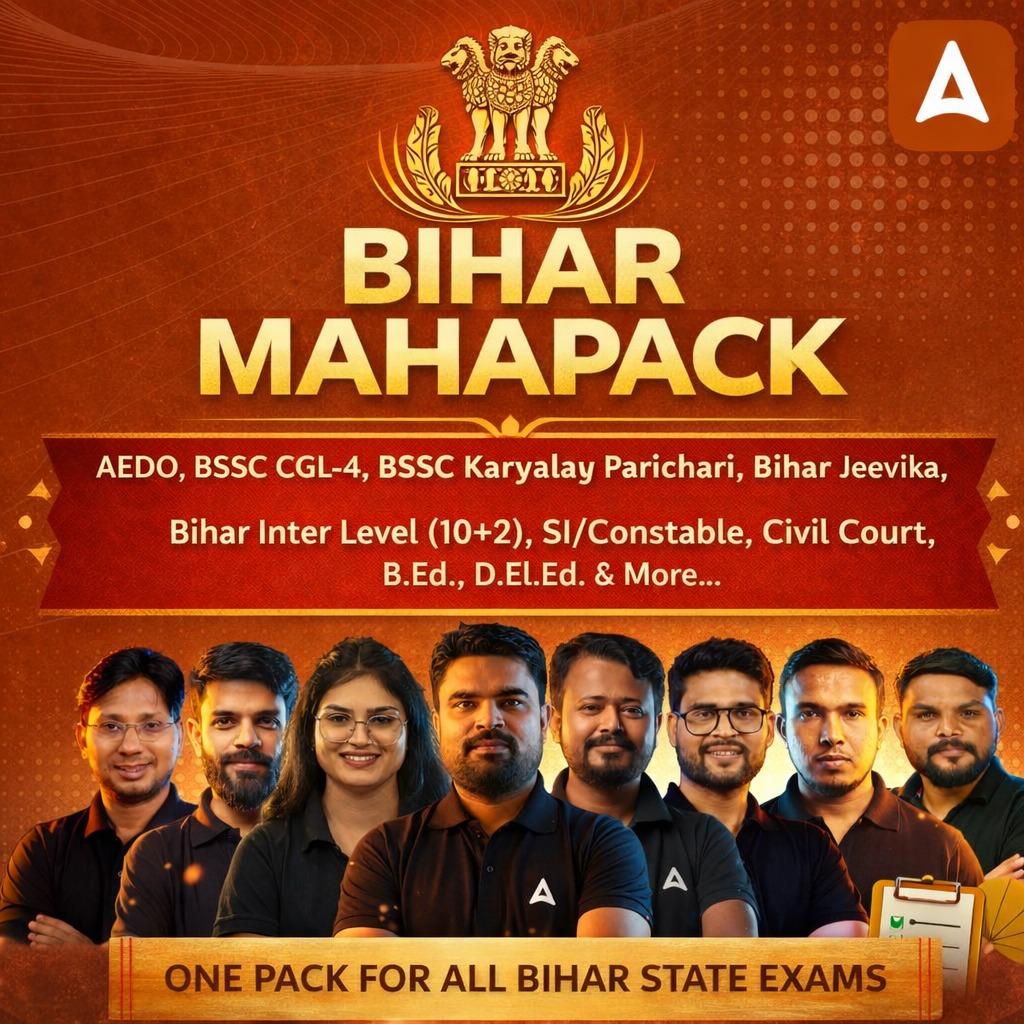

 APSC Forest Ranger Syllabus 2026, Downlo...
APSC Forest Ranger Syllabus 2026, Downlo...
 AP High Court Syllabus and Exam Pattern ...
AP High Court Syllabus and Exam Pattern ...
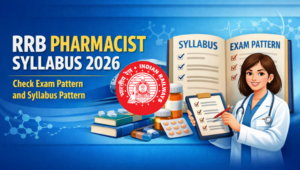 RRB Pharmacist Syllabus 2026, Check Exam...
RRB Pharmacist Syllabus 2026, Check Exam...

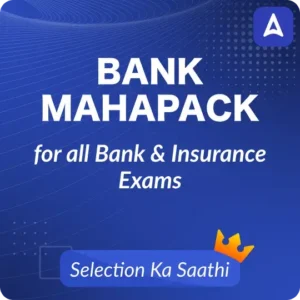
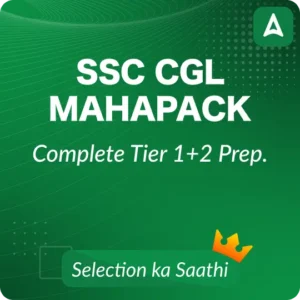
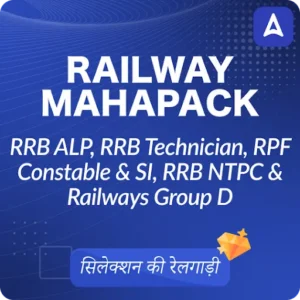
 Adda247 Job portal has complete information about all Sarkari Jobs and Naukri Alerts, its latest recruitment notifications, from all state and national level jobs and their updates.
Adda247 Job portal has complete information about all Sarkari Jobs and Naukri Alerts, its latest recruitment notifications, from all state and national level jobs and their updates.




